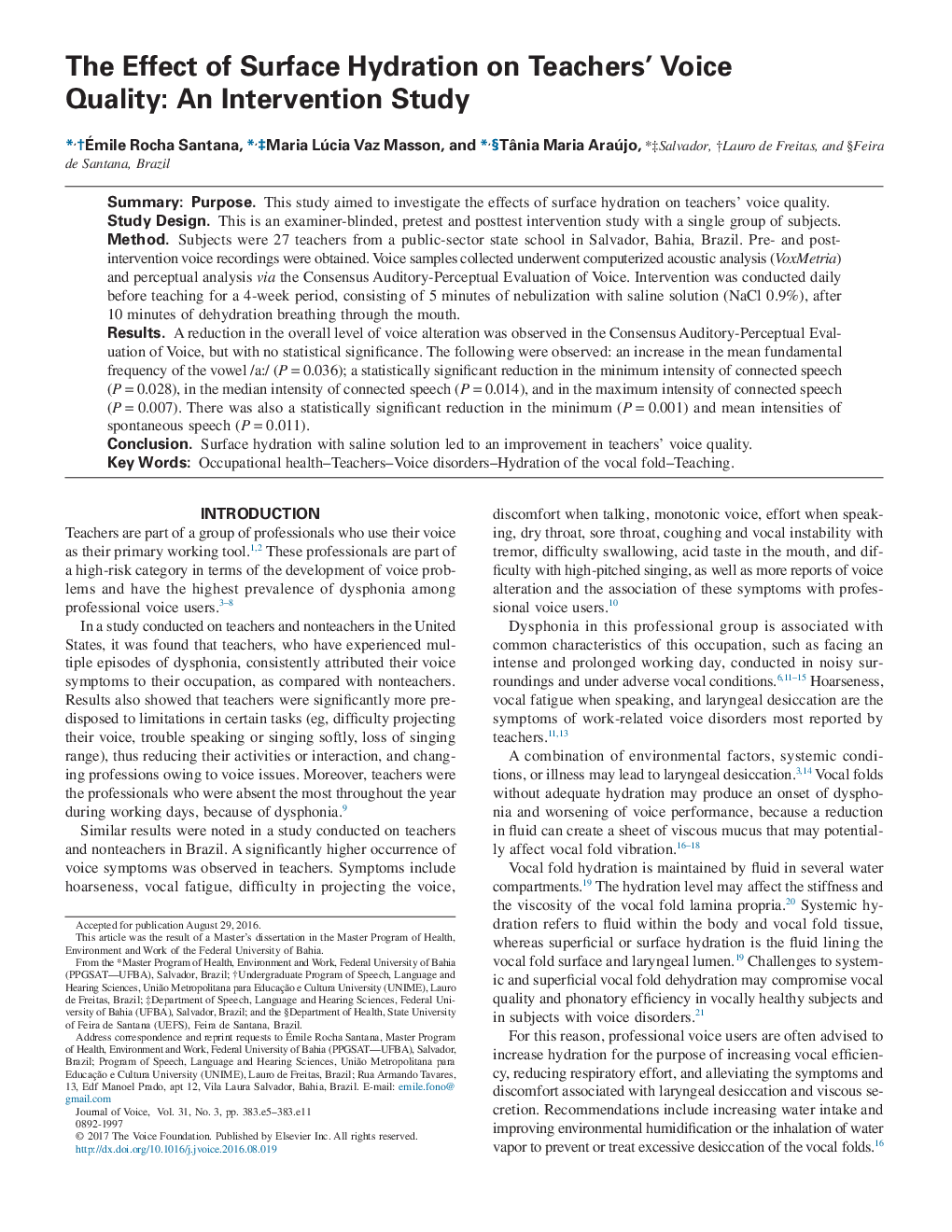| Article ID | Journal | Published Year | Pages | File Type |
|---|---|---|---|---|
| 5124259 | Journal of Voice | 2017 | 7 Pages |
SummaryPurposeThis study aimed to investigate the effects of surface hydration on teachers' voice quality.Study DesignThis is an examiner-blinded, pretest and posttest intervention study with a single group of subjects.MethodSubjects were 27 teachers from a public-sector state school in Salvador, Bahia, Brazil. Pre- and post-intervention voice recordings were obtained. Voice samples collected underwent computerized acoustic analysis (VoxMetria) and perceptual analysis via the Consensus Auditory-Perceptual Evaluation of Voice. Intervention was conducted daily before teaching for a 4-week period, consisting of 5 minutes of nebulization with saline solution (NaCl 0.9%), after 10 minutes of dehydration breathing through the mouth.ResultsA reduction in the overall level of voice alteration was observed in the Consensus Auditory-Perceptual Evaluation of Voice, but with no statistical significance. The following were observed: an increase in the mean fundamental frequency of the vowel /a:/ (Pâ=â0.036); a statistically significant reduction in the minimum intensity of connected speech (Pâ=â0.028), in the median intensity of connected speech (Pâ=â0.014), and in the maximum intensity of connected speech (Pâ=â0.007). There was also a statistically significant reduction in the minimum (Pâ=â0.001) and mean intensities of spontaneous speech (Pâ=â0.011).ConclusionSurface hydration with saline solution led to an improvement in teachers' voice quality.
